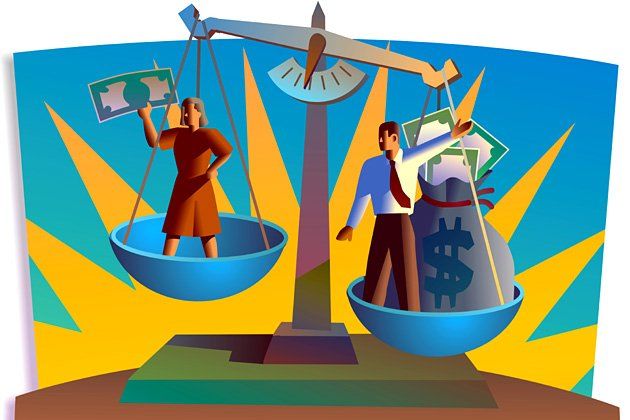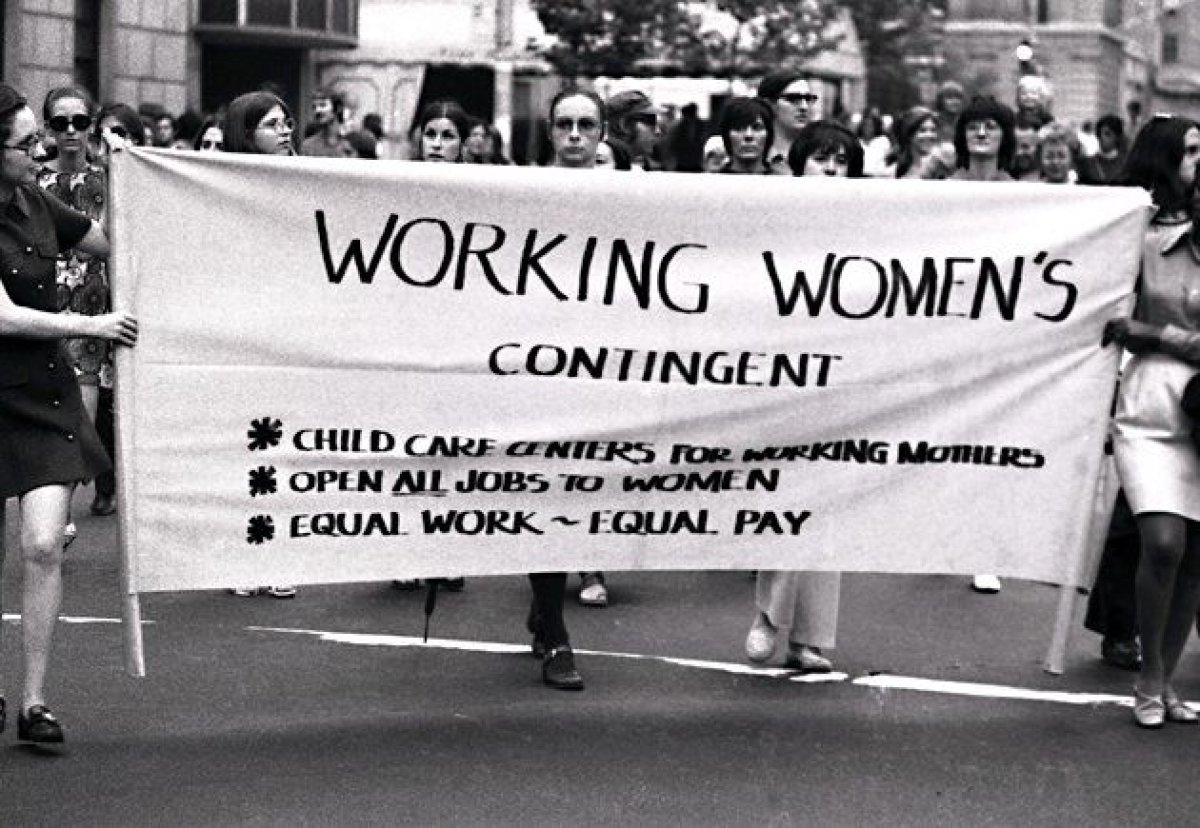
Even female attorneys within the highest-ranks of elite law firms are paid, on average, roughly $66,000 less than their male counterparts, according to a new study done by the Project for Attorney Retention and the Minority Corporate Counsel Association.
"Frankly, the numbers are so stark that it really does call into question whether there is a systemic problem," says employment attorney William Martucci.
The study, called "New Millennium, Same Glass Ceiling?," found that the oft-cited explanation for the gap—that family responsibilities mean women are less ambitious, more distracted, and less productive than men—is ultimately an inadequate excuse. The biggest contributing factors, according to the study's authors, are not nearly as benign: they include stereotyping, gender bias, and even bullying and intimidation.

Of some 700 female lawyers surveyed, more than half of equity partners and two-thirds of income and minority partners say they are dissatisfied with the way compensation was determined at their firms—compared to nearly three-quarters of men who reported high levels of satisfaction with those systems, according to an earlier study. Complaints include a lack of diversity within compensation committees, a lack of wage transparency, and too much weight given to factors such as billable hours and too little to institutional investments like developing a firm's human capital and nurturing young associates.
Female lawyers also reported being stymied by the "double bind," saying that for women it's virtually impossible to be simultaneously respected and well-liked. "You must engage in self-promotion but you're penalized for doing so if you're a woman," says Joan Williams, a professor at UC's Hastings College of the Law and an author of the report. But Williams says that she was perhaps most surprised by the fact that the survey respondents were so incensed by their experiences at work, which was made clear through comments they submitted online. "The anger comes from the fact that they see these patterns of gender bias, double standards, and double binds in their everyday lives."
Further fueling that anger is that a third of those surveyed reported being threatened, bullied or intimidated into giving up what law firms call "origination credit." If a lawyer is thought of as being responsible for originally bringing in a new client, they can earn 20 to 30 percent of that client's billing, sometimes for decades after the fact.
The conventional wisdom, as Williams notes, is that women bring in fewer clients because their domestic responsibilities preclude them from being able to go golfing, have late dinners, and engage in other activities that cultivate those relationships. But the study found that female lawyers believe that they do just as much "rainmaking," but then are denied legitimate claims to credit. "I was surprised at the fervor and surprised that that's the way they felt," Williams says. "It's very clear that senior women lawyers are just incensed about their firms' compensation systems."

Some of these findings, according to the study's authors, explain why there are such high levels of attrition among senior women attorneys -- not just those in their childbearing years -- and why, despite the fact that 50 percent of law school graduates are women, fewer than 20 percent of law partners are female. Those figures ring true across other fields—just 3 percent of Fortune 500 companies are headed by women, and women make up only a quarter of politicians.
This study comes amidst a slew of other recent research that examines the persistent gender wage gap across industries and follows on the heels of a recent landmark discrimination judgment against Swiss pharmaceutical company Novartis. Martucci believes that that case, the ongoing discrimination suit against Wal-Mart Inc., and studies like this one indicate that equity and the role of women will be one of the most significant issues within the American workplace over the next 10 years.
That's probably not a bad thing. There's ample evidence that gender and racial diversity among corporate boards and senior leadership has a positive impact on a company's bottom line. And, with men suffering more in terms of job-losses during the recession, ensuring equal pay is increasingly an issue that affects not just women but entire families. Given that other studies have found that closing the gender wage gap could result in significant GDP growth, making this issue a priority in the next decade could be what keeps America—men and women included—competitive.
Find the author on the Web at The Equality Myth.
Uncommon Knowledge
Newsweek is committed to challenging conventional wisdom and finding connections in the search for common ground.
Newsweek is committed to challenging conventional wisdom and finding connections in the search for common ground.
About the writer
To read how Newsweek uses AI as a newsroom tool, Click here.








